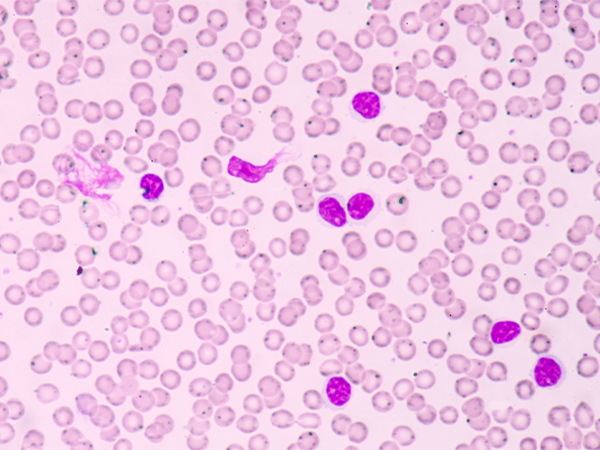Targeted Therapy for Blood Cancer Patients
The FDA approved a molecularly targeted therapy to treat patients with chronic lymphocytic leukemia and small lymphocytic lymphoma.

The molecularly targeted therapeutic acalabrutinib (Calquence) was approved by the U.S. Food and Drug Administration (FDA) for treating adults with chronic lymphocytic leukemia (CLL), a cancer of the blood and bone marrow, or with small lymphocytic lymphoma (SLL), a slow-growing type of non-Hodgkin lymphoma of the lymph nodes.
CLL and SLL are essentially the same disease, according to the National Cancer Institute, but have different names depending on where in the body the cancer cells accumulate. CLL cells are found mostly in the blood and bone marrow, whereas SLL cells are found mostly in the lymph nodes.
Acalabrutinib’s approval was based on results from two randomized phase III clinical trials: the ELEVATE-TN clinical trial, which involved 535 patients with previously untreated CLL or SLL, and the ASCEND clinical trial, which involved 310 patients with CLL or SLL that had relapsed after or not responded to at least one prior treatment. In both clinical trials, the time before disease progressed was significantly longer among patients who received acalabrutinib compared with patients who received alternative treatments.
In October 2017, acalabrutinib was approved for certain patients with mantle cell lymphoma, a rare and aggressive form of non-Hodgkin lymphoma.
The approval for CLL and SLL was the second that the FDA has granted using the agency’s Project Orbis international collaboration initiative. The first was the September 2019 approval of the immunotherapeutic pembrolizumab (Keytruda) for treating certain patients with endometrial cancer.
The FDA collaborated with Australian and Canadian regulatory agencies for the targeted therapeutic review.
